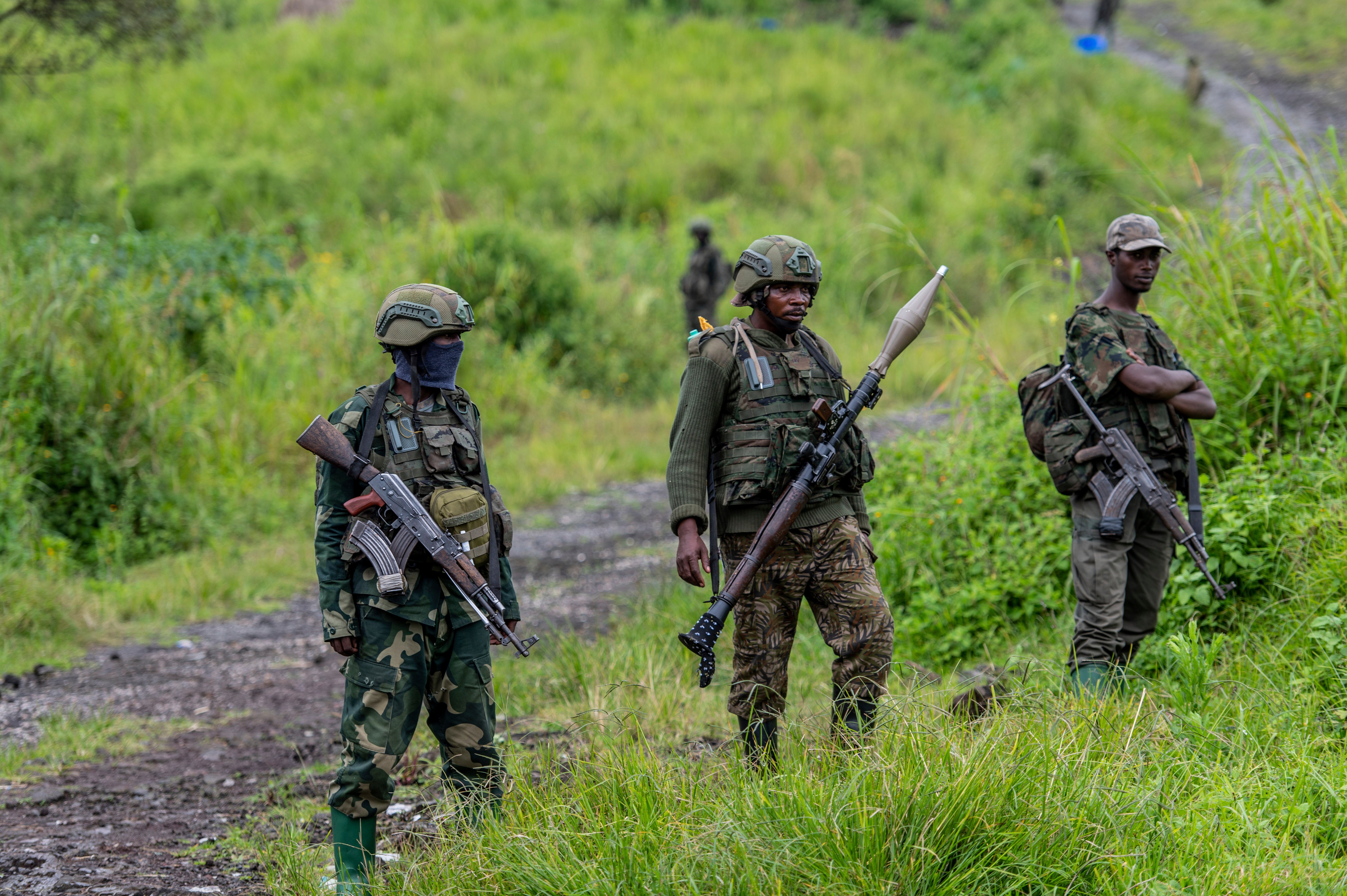East African summit urges peace in eastern Congo but its leader skips talks
East African heads of state have made another push for peace in eastern Congo but its prospects remained bleak following a regional summit that was marked by the Congolese president’s absence and an early departure of his Rwandan counterpart

Your support helps us to tell the story
From reproductive rights to climate change to Big Tech, The Independent is on the ground when the story is developing. Whether it's investigating the financials of Elon Musk's pro-Trump PAC or producing our latest documentary, 'The A Word', which shines a light on the American women fighting for reproductive rights, we know how important it is to parse out the facts from the messaging.
At such a critical moment in US history, we need reporters on the ground. Your donation allows us to keep sending journalists to speak to both sides of the story.
The Independent is trusted by Americans across the entire political spectrum. And unlike many other quality news outlets, we choose not to lock Americans out of our reporting and analysis with paywalls. We believe quality journalism should be available to everyone, paid for by those who can afford it.
Your support makes all the difference.East African heads of state made another push for peace in eastern Congo on Saturday but its prospects remained bleak following a regional summit that was marked by the Congolese president's absence and an early departure of his Rwandan counterpart.
A communique read at the end of the closed-door meeting of the East African Community in Arusha, Tanzania, only stated the need to combine regional and broader peace initiatives for sustainable peace in eastern Congo.
Violence has reemerged in one of the world's most protracted conflicts in eastern Congo, where Congo’s government accused the Rwanda-backed M23 rebel group of “ethnic cleansing” in mineral-rich areas close to Rwanda's border.
Rwandan President Paul Kagame left shortly after the closed-door meeting in Arusha. There was no official explanation for Congolese President Felix Tshisekedi's absence at the summit.
Congo alleges that Rwanda has been involved in war crimes in the east, and U.S. and U.N. experts accuse it of giving military backing to M23. Rwanda denies the claim, but in February admitted that it has troops and missile systems in eastern Congo to safeguard its security, pointing to a buildup of Congolese forces near the border. U.N. experts estimate there are up to 4,000 Rwandan forces in Congo.
A July truce brokered by the United States and Angola has reduced the fighting between Rwandan and Congolese forces, but fighting between M23 and other militias continues.
Other leaders at the summit were Presidents Salva Kiir of South Sudan, Samia Suluhu Hassan of Tanzania, William Ruto of Kenya, Yoweri Museveni of Uganda and Hassan Sheikh Mohamud of Somalia. Burundi was represented by its vice president.
Ruto was elected as the new chairperson of the EAC Summit, succeeding Kiir.
“Our focus must be on increasing competitiveness, promoting value-added production and boosting intra-regional trade to create jobs and transform our economies,” Ruto said.
He also urged member states to remain committed to the timely disbursement of statutory contributions to sustain the bloc’s operations.